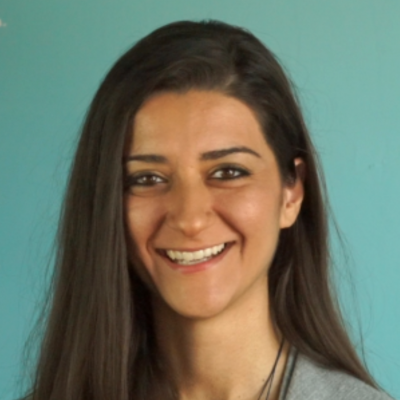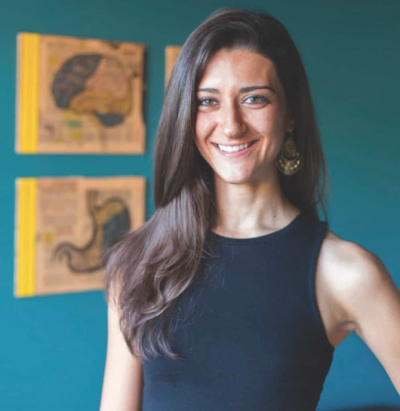

 I will preface this by saying that I have always been a very sensitive person my whole life since I was a child, a teenager. And as I was growing up, I didn't really know that my experience was maybe a little bit different than other people who weren't as sensitive. I wasn't familiar with the term “highly sensitive person” or empath or really introvert or any of those. So it was just kind of my experience.
I will preface this by saying that I have always been a very sensitive person my whole life since I was a child, a teenager. And as I was growing up, I didn't really know that my experience was maybe a little bit different than other people who weren't as sensitive. I wasn't familiar with the term “highly sensitive person” or empath or really introvert or any of those. So it was just kind of my experience.
So when I thought about the nicest thing that anybody had ever done for me, really my mind and my heart went back to my high school AP English teacher. And, also give the context of the story that I went to a really fantastic school growing up, K through 12, it was a really great kind of college preparatory school where everybody was going to great colleges or pursuing really great careers. But all in all, school was kind of a stressful experience for me as a child and as a teenager. And I realize now it's because I was a highly sensitive person or I was an empath and the stimulation was just a lot for me. But I really always thought that that was kind of something wrong with me because I noticed that I responded differently than my peers.
And school K through 12 was always really stressful, I can say almost even traumatic for me in these micro-trauma ways. And it wasn't the academics, it wasn't the kind of mental stressors. I was always a really good student, straight A's, honor roll, those sort of things, but it was more emotionally and socially and even energetically that I often felt overwhelmed. And I didn't know that it was overwhelm. I didn't even really understand what stress was when I was a kid or a teenager growing up. I just saw that my experience sometimes was really unpleasant. And so what would happen is I would start opting out of things. I would try to get out of class. I would fake sick. I would kind of do these things because I just didn't really understand my needs and how to get them met in this public school environment.
So come my senior year, things sort of started to culminate in a way where my body and my mind were sort of acting out from that overwhelm. And I started to experience pretty severe first signs of depression or anxiety, panic attacks in school. And again, I didn't know what these things were. I just realized that I just felt really terrible at school. And I had an English teacher, an AP English teacher Mrs. McFarlan then, who was able to recognize kind of this happening for me and happening within me. And I really felt like she was one of the first people in my life who could look truly and see what was going on for me. And so, I had a couple other counselors at school when I would start having panic attacks or I would stop showing up to school because I just wanted to stay home and avoid all the stimulation, they would sort of reprimand me or they would refer me to school psychologists or start punishing me for skipping days at school.
Whereas Mrs. McFarlan was able to really look at me and see that I was processing stuff a little differently than other kids. And it wasn't that I was being bad or I had really ill intention, but she started to give me little experiences where I could feel comfortable at school. And so, for example, coming late, we all know you get marked up, you get an absentee, you get tardy. And if you get three of those, you get punished at school. And so I started having these experiences where, because I was having anxiety at school or I was really stressed out, I'd stay up really late and it was hard for me to wake up in the morning. I would come late to school and Mrs. McFarlan would let me kind of just come sneak in and sit in her office and she would never mark me tardy.
And she'd let me sort of sit there quietly and study or read a book or sometimes even nap, or if I got really overwhelmed in the cafeteria, because of all the social cliques happening or just the loud kind of noises, she always let me kind of come back in the hallway and sit in her office and have my lunch quietly, myself or with a friend. And this experience of her doing these little nice things where she was giving me a safe place at school was really pivotal for me because it was the first time that I think I really felt seen and I felt understood, and I felt like it was okay for me to have a little bit of a different experience than my peers or everyone around me.
And it wasn't really until I got older that I started to learn about my sensitivity. I started to learn about the ideas of overstimulation and I started to find ways of building healthy boundaries and knowing myself and building resilience and vitality in my own body so I didn't have to opt out of activities or I didn't get overwhelmed as easily. That was part of my adult healing journey. But as a teenager, as a middle schooler, a high schooler, I didn't know these things. And my high school English teacher could really see that in me.
And it also had a lifelong impact on me. I think that experience helped me see that I modeled a behavior from an adult or just from another human being where you can look at a person and rather than judging them, or rather than assuming what's going on with them, you can think the best of them. You can see the potential in that person. And the idea that she didn't punish me for having unique needs was also really pivotal for me. Having an experience where someone doesn't shame you or blame you for just being who you are or having feelings or needs around something. So that stuck with me forever. And it was this idea of providing an environment for people to thrive, seeing their potential and providing that environment so that they can grow in their own special ways.
It allowed those first steps of self-acceptance and understanding my inner truth and my inner self, and really led me to the life path and the career that I am now. And now I embrace it wholeheartedly. And I call myself the sensitive doctor and I really embrace the idea of creating environments in which we are looking for the potential in people and looking for the strengths in them and allowing them to get those gifts from their true inner self and bringing it out in that way.
And I think that that, when I think about my why and the purpose of what I wake up and I do every day for myself, my family, my loved ones, my friends, and my clients is really that same sort of environment, that same little office space that Mrs. McFarlan gave me to go to whenever I needed and know that I could be myself and love myself while I was going through life's journeys. And so I think that was the nicest thing anyone ever did to me was, or did for me, was to give me space to be myself.
 Dr. Natasha Fallahi is known as The Sensitive Doctor. She is a mind-body health expert, functional medicine practitioner, energy therapist, certified autoimmune coach, and multimedia artist with an intuitive approach to living and healing. As founder of Club Sensitive, she brings together sensitive people experiencing anxiety, depression, and overwhelm, coaching them to connect with their intuition, develop holistic rituals, overcome trauma, and meet kindred spirits. They share stories and best practices using mind-body techniques including energy medicine and healing foods, so that they can harness their own magic, tap into their superpowers, experience true wellness, build lasting relationships, and finally feel at home in this world.
Dr. Natasha Fallahi is known as The Sensitive Doctor. She is a mind-body health expert, functional medicine practitioner, energy therapist, certified autoimmune coach, and multimedia artist with an intuitive approach to living and healing. As founder of Club Sensitive, she brings together sensitive people experiencing anxiety, depression, and overwhelm, coaching them to connect with their intuition, develop holistic rituals, overcome trauma, and meet kindred spirits. They share stories and best practices using mind-body techniques including energy medicine and healing foods, so that they can harness their own magic, tap into their superpowers, experience true wellness, build lasting relationships, and finally feel at home in this world.
Like many of the people she provides care for, Natasha herself struggled for many years with unexplainable health issues. After transforming her own health with mind-body medicine, she dedicated her life and career to helping people suffering from mystery symptoms and chronic illness. She's passionate about guiding others to achieve their highest potential — physically, emotionally, and energetically. Her approach is especially effective for people experiencing depression, anxiety, chronic fatigue, vague pain, brain fog, food intolerance, chemical sensitivities, Hashimoto’s, and autoimmunity.
In addition to earning her doctorate in chiropractic, Natasha holds advanced training in functional medicine, functional immunology, functional neurology, energy psychology, homeopathy, nutrition, and somatic bodywork. With her background in multimedia studies, art, and design, she brings a creative flair to everything she does.
Catalyst is produced by The Shift Network to feature inspiring stories and provide information to help shift consciousness and take practical action. To receive Catalyst twice a month, sign up here.
This article appears in: 2021 Catalyst, Issue 18 - Empaths, Sensitives & Intuitives Summit